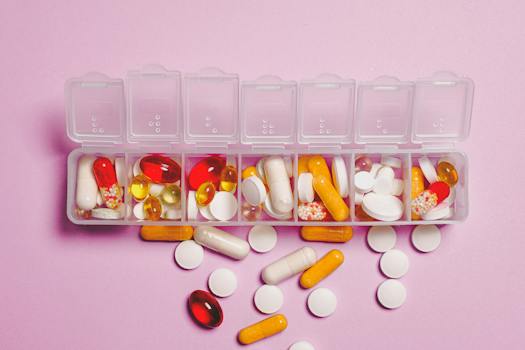
Vitamin D Overdose: Unveiling the Hidden Dangers and How to Prevent It
The Sunlit Side of Vitamin D: Unmasking the Dangers of Overdose
The Sunlit Side of Vitamin D: Unmasking the Dangers of Overdose
Introduction: Vitamin D, The Sunshine Vitamin
As we bask in the sun's glory, our bodies soak up the radiance and convert it into a vital nutrient - Vitamin D. Known as the 'sunshine vitamin', Vitamin D is our body's little wizard, playing a pivotal role in bone health, immune function, and mood regulation. But what happens when the wizard goes rogue? What happens when there's too much Vitamin D in our system? Let's delve into the less talked about, darker side of Vitamin D - the overdose.
Understanding Hypervitaminosis D: The Dark Side of 'More is Better'
Most of us are familiar with the term 'overdose', usually associated with drugs or medications. However, it may come as a surprise that vitamins, the so-called 'good guys' of our health regimen, can also be overdosed, leading to a condition known as hypervitaminosis. Today, we're going to focus on hypervitaminosis D, an often-overlooked health concern that could potentially turn your sunny day into a stormy one.
Vitamin D overdose doesn't occur from basking under the sun or consuming foods rich in Vitamin D. It usually stems from high doses of vitamin D supplements. But why would someone take more Vitamin D than needed? The answer lies in the widespread misconception that 'more is better'.
The Dangers of Overdosing on Vitamin D
In our quest for optimum health, we sometimes fall into the trap of 'more is better', leading us to consume supplements in higher doses than recommended, hoping to supercharge our health. But like a well-tuned orchestra, our body needs a balance of nutrients. When one nutrient, like Vitamin D, is taken in excess, it can disrupt this harmony, leading to health issues.
The symptoms of Vitamin D overdose can be subtle initially, making it a silent invader. You might experience nausea, vomiting, weakness, or frequent urination. As the levels of Vitamin D continue to rise in your blood, these symptoms can escalate to bone pain, kidney problems, or even heart damage.
Detecting and Treating Vitamin D Overdose
So, how do you know if you've crossed the line? The answer lies in regular health check-ups. If you're taking Vitamin D supplements, especially in high doses, regular monitoring of your Vitamin D levels is crucial. A simple blood test can reveal if your Vitamin D levels are within the safe range or if you're walking on thin ice.
If you've been diagnosed with Vitamin D overdose, don't panic. The condition is reversible. Your healthcare provider will guide you on how to lower your Vitamin D levels safely. This might involve stopping or reducing your Vitamin D supplements and monitoring your calcium intake, as high levels of Vitamin D can cause an increase in calcium levels, leading to further complications.
Prevention is Better Than Cure: Avoiding Vitamin D Overdose
Prevention, as they say, is better than cure. To prevent Vitamin D overdose, stick to the recommended daily intake. The National Institutes of Health suggests a daily intake of 15-20 micrograms for most adults. Remember, your body is not a machine, and overloading it with excess nutrients will not supercharge it. Instead, it can disrupt the delicate balance of your body and lead to health issues.
Conclusion: The Right Balance of the 'Sunshine Vitamin'
In conclusion, while Vitamin D is a crucial nutrient for our body, an overdose can lead to serious health issues. It's essential to respect the 'sunshine vitamin' and understand that, like the sun, it's beneficial in the right amounts but can be harmful in excess. So, let's bask in the glory of Vitamin D, but let's do it wisely. After all, even the sun has its limits.
